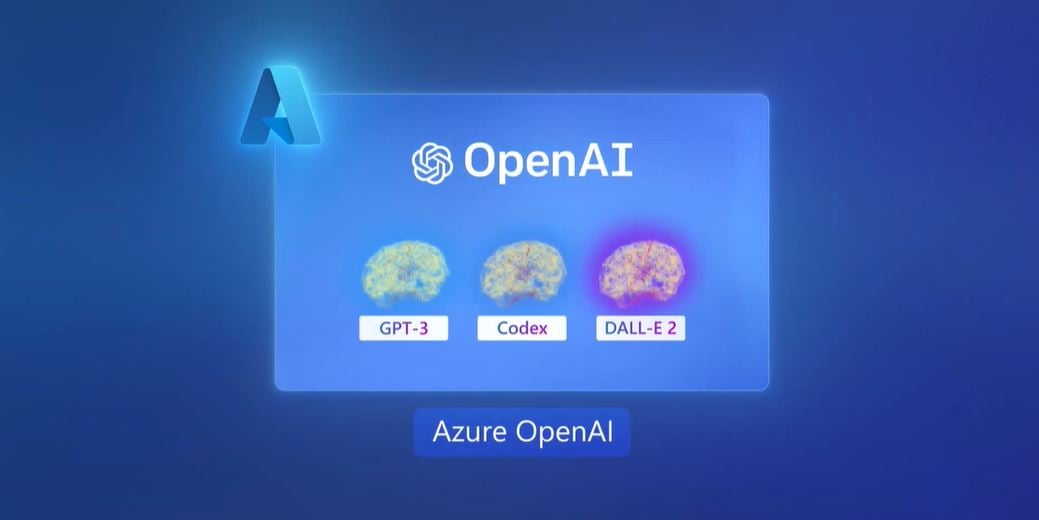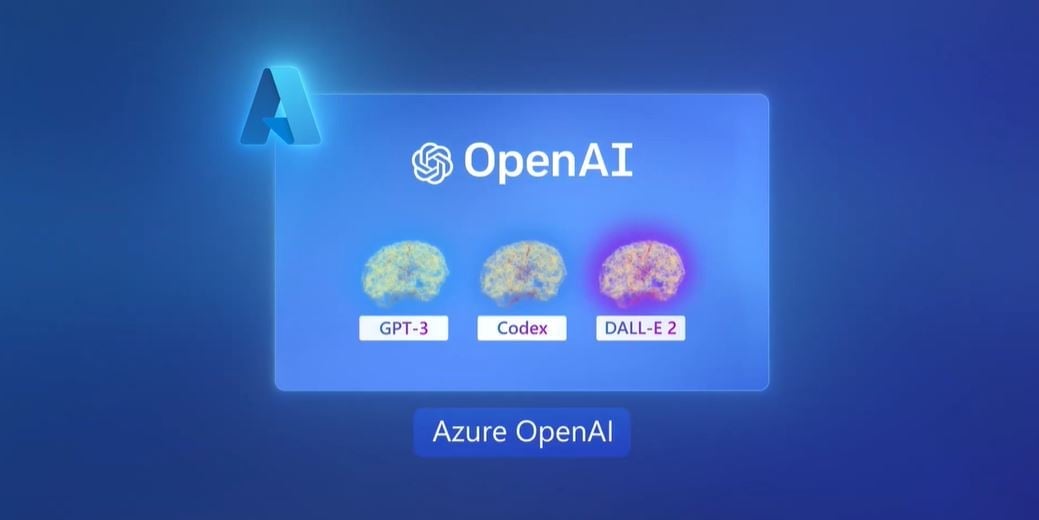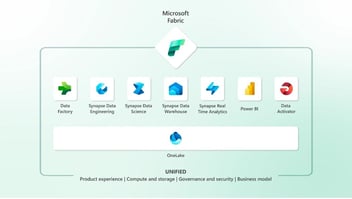Microsoft launches Azure OpenAI Service, which makes best-of-breed advanced artificial intelligence models, including ChatGPT, available to enterprises.
At a time when ChatGPT is revolutionising the market, Microsoft launches Azure OpenAI Service, an artificial intelligence service that incorporates the best advanced AI algorithms on the market. Discover the capabilities, models and benefits of Azure OpenAI Service.

For some months now, everyone has been talking about ChatGPT, the new artificial intelligence algorithm based on natural language processing (NLP) that has revolutionised the market and put artificial intelligence and its capabilities in the spotlight.
The ChatGPT phenomenon has put the spotlight on the capabilities of artificial intelligence. Beyond question processing and the ability to provide answers in natural language —the best-known use of ChatGPT— artificial intelligence algorithms and, specifically, machine learning, have many other applications.
At a time when artificial intelligence is on everyone's lips, Microsoft is launching the general availability of Azure OpenAI Service; a service that makes advanced, large-scale artificial intelligence models available to businesses. According to Microsoft, the growing importance of large-scale language models for innovation and solving complex problems using artificial intelligence algorithms is undeniable. The general availability of Azure OpenAI Service is part of Microsoft's ongoing effort to democratise access to artificial intelligence.
What is Azure OpenAI Service?
Azure OpenAI Service is an artificial intelligence service offered by Microsoft Azure in collaboration with OpenAI. This service allows companies and developers to access next-generation artificial intelligence models —GPT-3.5, Codex and DALL•E 2— to create advanced applications and solve complex problems.
Microsoft's vision is to offer a complete artificial intelligence service through which businesses can access the world's most advanced artificial intelligence models, backed by the built-in security measures of Microsoft Azure.
Azure OpenAI Service runs on Microsoft Azure's AI-optimised infrastructure and offers enterprise-grade functionality. It is therefore an ideal service for companies and organisations that need scalable, high-performance AI solutions.
Among the artificial intelligence models included in Azure OpenAI Service, the following stand out:
- GPT-3.5: Ideal for generating and synthesising texts coherently and at high speed. Applications include research, marketing and customer service automation.
- Codex: It is a model designed to assist developers in the creation of applications. Codex produces code and documentation in an automated way.
- DALL•E: This AI algorithm has the ability to generate unique images and other graphic elements according to each user's specific parameters and needs. It is very useful for marketing and commercial campaigns and product development.
In addition, Microsoft has announced that OpenAI Azure Service customers will soon also be able to access ChatGPT, an optimised version of GPT-3.5 that trains and runs inference on Azure AI infrastructure, via the Azure OpenAI Service.
Azure OpenAI Service: The marriage of best AI capabilities and the best cloud benefits
The general release of Azure OpenAI Service is part of Microsoft's ongoing effort to offer its customers large-scale generative AI models in a secure, trusted, compliant, data privacy-assured and responsible AI environment.
The true potential of Azure OpenAI Service goes beyond making the best AI models on the market available to customers. The great added value of this service is the union between the best artificial intelligence capabilities and the best capabilities of the cloud environment.
Azure is currently among the top 15 supercomputers in the TOP500 list worldwide and is the top-ranked global cloud service provider. According to Microsoft: "Azure is currently the only public cloud worldwide that offers artificial intelligence supercomputers with massive horizontal and vertical scalability. Azure combines best-in-class networking and GPU solutions in a single architecture design, enabling exceptional performance and scale for compute-intensive AI training and inference workloads."
Towards a responsible artificial intelligence
One of Microsoft's big goals is to make Azure the environment of choice for responsible use of artificial intelligence, especially for emerging technologies such as generative AI models.
With this goal in mind, Azure OpenAI Service has been developed using an iterative approach to large-scale models, in collaboration with OpenAI and Microsoft customers, to evaluate use cases and address potential risks: "At Microsoft, we are committed to advancing AI driven by principles that put people first. Generative models like those available in the Azure OpenAI service have significant potential benefits, but without careful design and thoughtful mitigations, these models have the potential to generate incorrect or even harmful content. Microsoft has made significant investments to help prevent abuse and unintended harm, including requiring applicants to show well-defined use cases, incorporating Microsoft's principles for responsible AI use, creating content filters to help customers, and providing guidance on responsible AI deployment to onboarding customers."
Azure OpenAI Service integrates best-of-breed security measures that are based on ethical principles, including privacy protection and mitigation of risks associated with the technology. For example, the service includes a limited access framework, whereby, in order to use the service, developers must request access and explain the application or intended use case.
In addition, the environment also integrates content filters specifically designed to detect abusive, offensive and biased content, which constantly monitor the entries provided to the service and the content generated.
Microsoft said: "With our AI models, we are confident that our customers will be able to innovate in completely new and exciting ways, without sacrificing safety and ethics.



